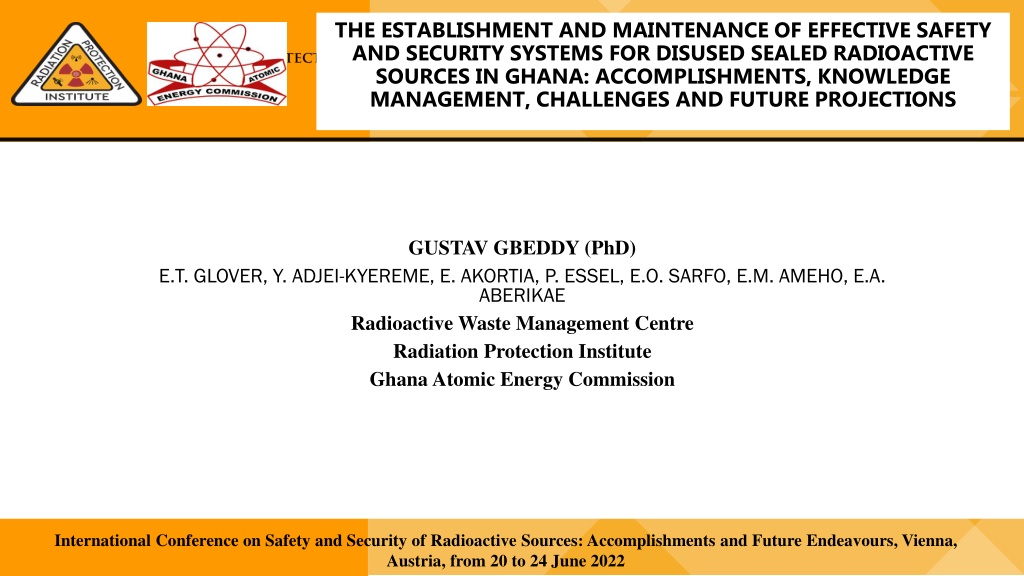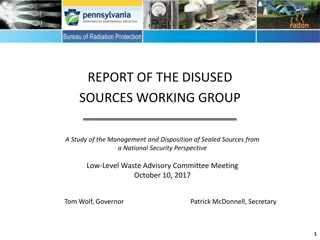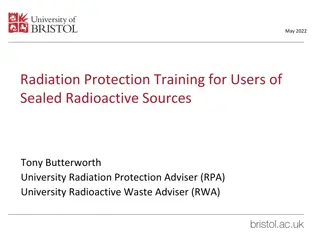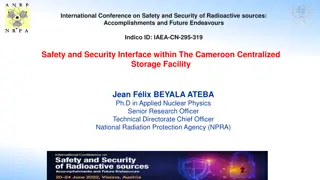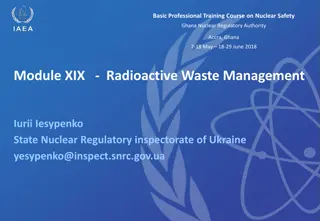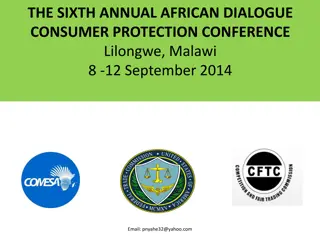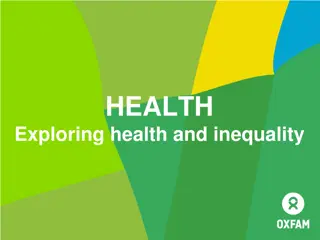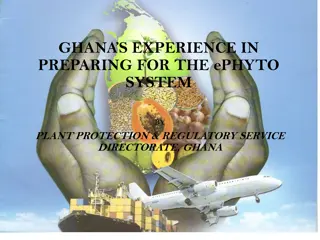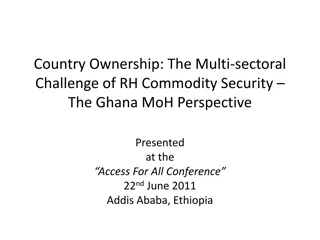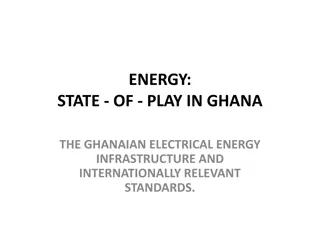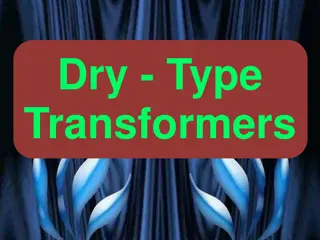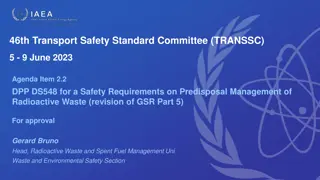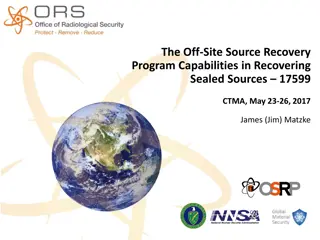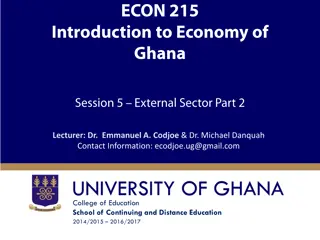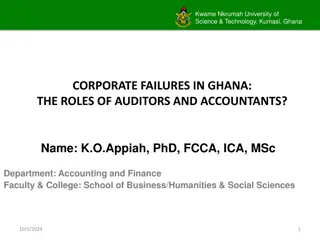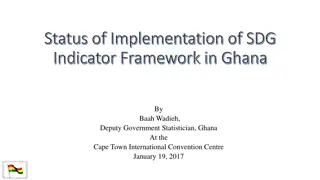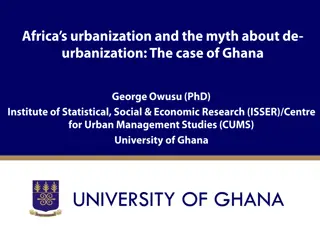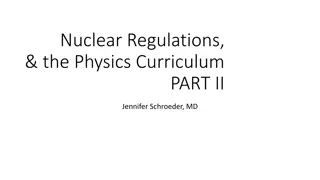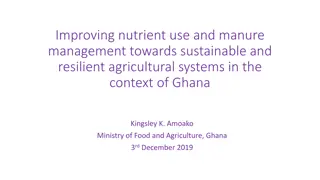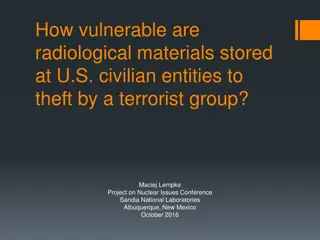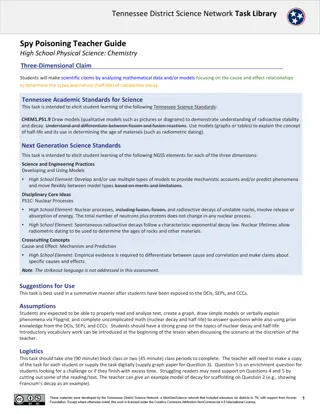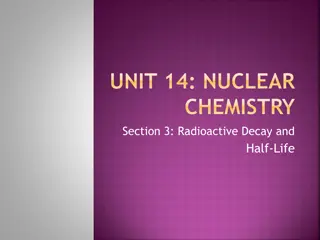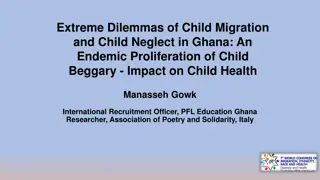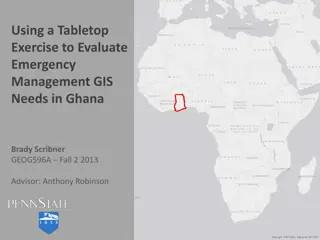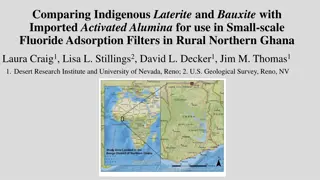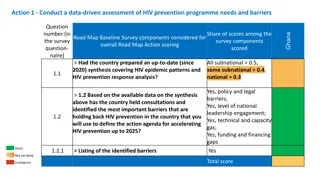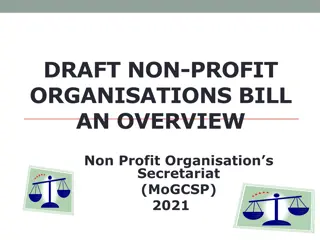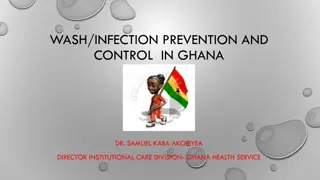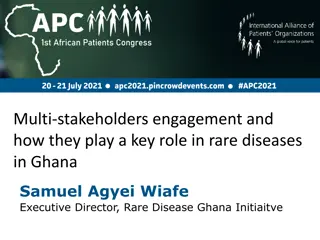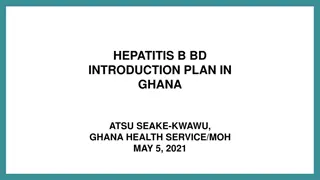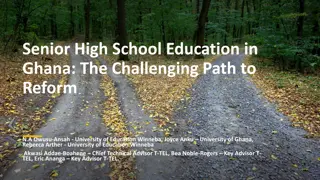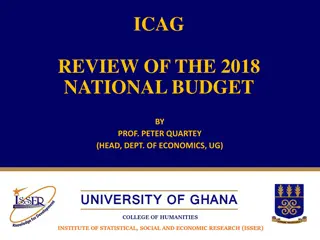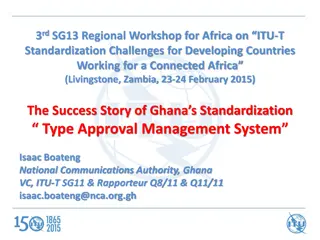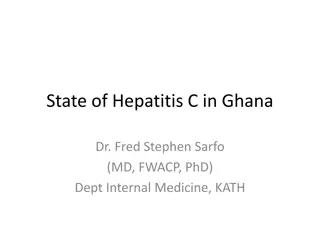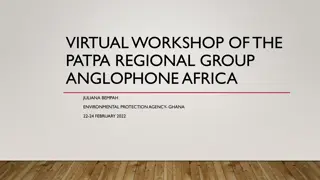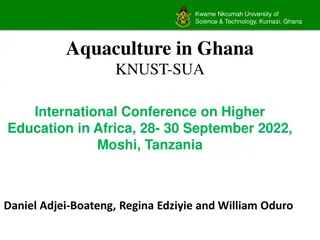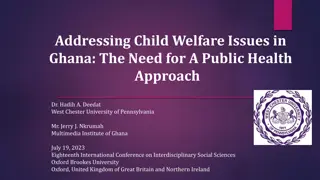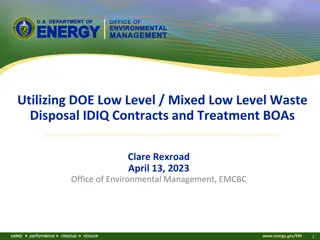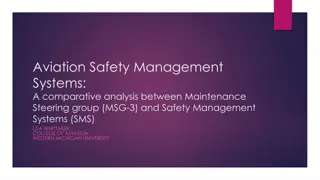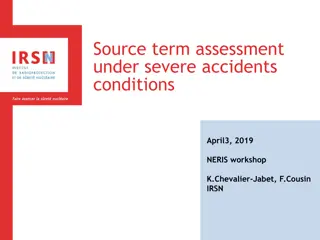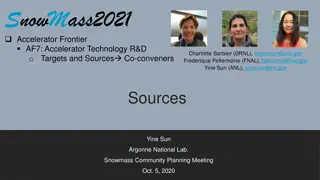Effective Safety and Security Systems for Disused Sealed Radioactive Sources in Ghana
Ghana has benefited from the peaceful use of sealed radioactive sources in various sectors. The establishment of safety measures, security systems, and knowledge management for disused sealed radioactive sources (DSRS) is crucial. Challenges and future projections in this area are discussed, emphasizing the importance of ensuring the safe handling and storage of DSRS to maintain peace and security in the region.
Uploaded on Oct 01, 2024 | 0 Views
Download Presentation

Please find below an Image/Link to download the presentation.
The content on the website is provided AS IS for your information and personal use only. It may not be sold, licensed, or shared on other websites without obtaining consent from the author. Download presentation by click this link. If you encounter any issues during the download, it is possible that the publisher has removed the file from their server.
E N D
Presentation Transcript
THE ESTABLISHMENT AND MAINTENANCE OF EFFECTIVE SAFETY AND SECURITY SYSTEMS FOR DISUSED SEALED RADIOACTIVE SOURCES IN GHANA: ACCOMPLISHMENTS, KNOWLEDGE MANAGEMENT, CHALLENGES AND FUTURE PROJECTIONS GUSTAV GBEDDY (PhD) E.T. GLOVER, Y. ADJEI-KYEREME, E. AKORTIA, P. ESSEL, E.O. SARFO, E.M. AMEHO, E.A. ABERIKAE Radioactive Waste Management Centre Radiation Protection Institute Ghana Atomic Energy Commission International Conference on Safety and Security of Radioactive Sources: Accomplishments and Future Endeavours, Vienna, Austria, from 20 to 24 June 2022
THE ESTABLISHMENT AND MAINTENANCE OF EFFECTIVE SAFETY AND SECURITY SYSTEMS FOR DISUSED SEALED RADIOACTIVE SOURCES IN GHANA: ACCOMPLISHMENTS, KNOWLEDGE MANAGEMENT, CHALLENGES AND FUTURE PROJECTIONS OUTLINE Introduction Safety Measures for DSRS Management Security Systems for DSRS Storage Knowledge Management, Education and Training Challenges and Future Projections Acknowledgement International Conference on Safety and Security of Radioactive Sources: Accomplishments and Future Endeavours, Vienna, Austria, from 20 to 24 June 2022
Introduction Ghana has benefited immensely from the peaceful application of sealed radioactive sources in vital areas of agriculture, medicine, industry, education and research Disused sealed radioactive sources (DSRS) emanating from these applications are then decommissioned by the Users under the permission of the Nuclear Regulatory Authority (NRA). DSRS ownership is legally transferred by the Users to the Radioactive Waste Management Centre (RWMC) if no return to the Supplier agreement exists. DSRS are transported by licensed logistic companies to the Centralized DSRS Processing and Storage Facility (CDSRSPSF) for further management.
Introduction The new CDSRSPSF was constructed with the aid of the United States Department of Energy s National Nuclear Security Administration (NNSA) Office of Global Threat Reduction Initiative (GTRI) to enhance the security and safety of the increasing number of DSRS.
Introduction Ghana is an oasis of peace in the West African Sub-Region due to the volatile political climate in the neighbouring States. In this regard, the provision of adequate safety and security for DSRS in Ghana cannot be underrated.
Safety Measures for DSRS A number of internationally accepted safe measures have been employed in the management of DSRS to ensure sustainable protection of people and the environment. Initial safety of the radioactive sources resides with the User until the sources are declared as disused and legally transferred to the RWMC. The CDSRSPSF is designated as a controlled radiological area. The thickness of the Facility walls shields potential radiation from the varied categories of DSRS. Radiological hazard warning signs are displaced at vantage points around the Facility.
Safety Measures for DSRS In addition to the application of ALARA principles, all personnel assessing the Facility are provided with personal dosimeters (TLD badges) and electronic dosimeters; the Radiation Safety Officer (RSO) ensures that these dosimeters are worn and used appropriately. Hand held radiation monitors and Wall mounted rad-DX 84 are used at the Facility.
Safety Measures for DSRS Hand and foot contamination monitor is installed at the Facility. An old lead apron is also available for providing shielding for personnel in the event of conducting high radiation hazard activities. Radiation and contamination monitoring as well as airborne radioactivity measurement around the Facility are conducted regularly to ensure compliance with the operational permit granted by the NRA. Borehole disposal system (BDS) is considered as the grave option for the safe disposal of DSRS in Ghana thereby avoiding unnecessary burden on future generations.
Security Systems for DSRS Storage The Facility was constructed using re-enforced concrete walls of appropriate thickness; breakdown and intrusion proof, more resistant to fire, earthquake and moisture thereby offering greater physical protection for the DSRS. An in-depth security system has been installed at the Facility. The system includes alarm triggered biometric, key and passcode access.
Security Systems for DSRS Storage CCTV devices are installed within and outside the Facility to ensure constant monitoring and control of the Facility.
Security Systems for DSRS Storage The Facility was equipped with solar powered back-up system in January 2022. The CCTV system outside the Facility and GAEC site was deployed through the efforts of the Ministry of Interior and National Security. The Regulator and RWMC ensure accountability of DSRSs and orphan sources in Ghana by maintaining a computerized national registry.
Security Systems for DSRS Storage In prior preparation for the full deployment of BDS in Ghana, Cat 3 to 5 sources have been conditioned and placed securely in a retrievable manner inside concrete drums.
Knowledge Management, Education and Training GAEC in collaboration with the IAEA and the University of Ghana have established the Graduate School of Nuclear and Allied Sciences (SNAS). Post-graduate programmes in radiation protection, nuclear science and technology, environmental protection, and post-graduate education certificate in radiation protection and safety of radioactive sources (PGEC) have produced the requisite human resource to manage DSRS safely and securely. Participation in various IAEA organized inter-regional, AFRA regional and Joint ICTP training programmes have contributed to the acquisition of knowledge and skills.
Challenges and Future Projections The lack of reliable and stable national electrical grid coupled with the non-availability of stand-by generators to power the installed security systems that are currently not supported by the solar system is a major challenge. We believe the integration of nuclear power plant (NPP) into Ghana s energy mix will help address this challenge.
THE ESTABLISHMENT AND MAINTENANCE OF EFFECTIVE SAFETY AND SECURITY SYSTEMS FOR DISUSED SEALED RADIOACTIVE SOURCES IN GHANA: ACCOMPLISHMENTS, KNOWLEDGE MANAGEMENT, CHALLENGES AND FUTURE PROJECTIONS ACKNOWLEDGEMENT The RWMC wishes to express our profound gratitude to the IAEA and key donor Nations particularly the U.S.A. government for their unflinching support in the provision of requisite assistance in the provision and maintenance of safety and security of DSRS in Ghana. THANK YOU!!! International Conference on Safety and Security of Radioactive Sources: Accomplishments and Future Endeavours, Vienna, Austria, from 20 to 24 June 2022
